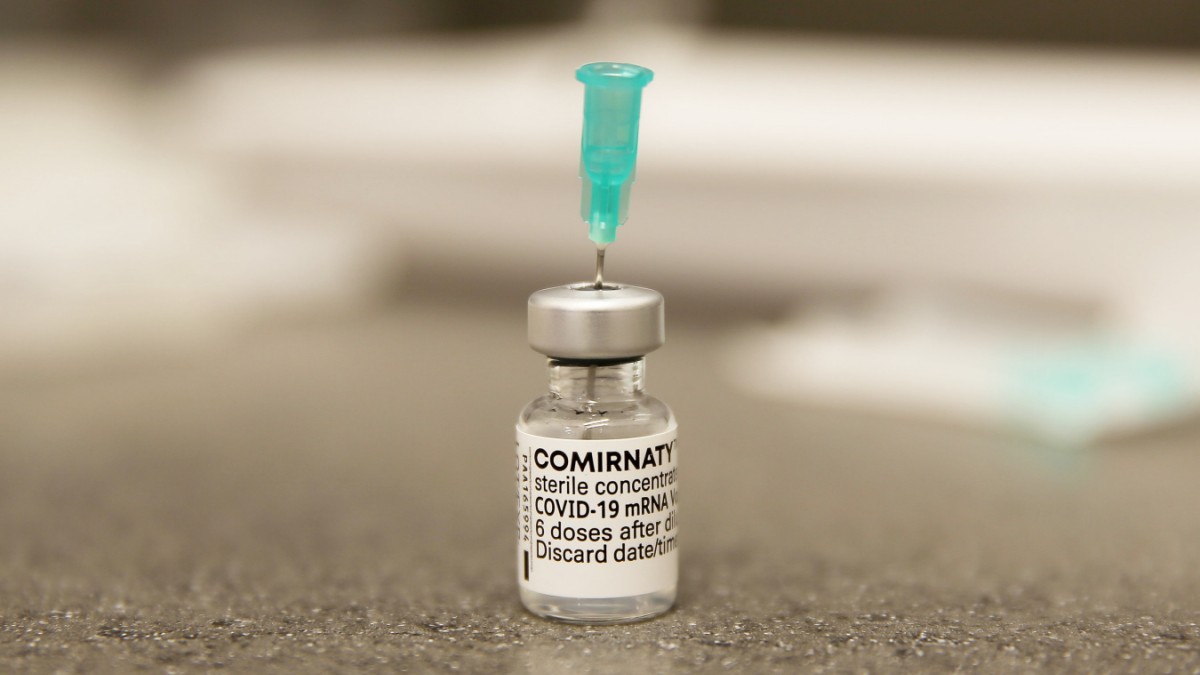It is now certain that mRNA vaccines provide reliable protection against corona infection. The vaccines from Biontech and Moderna, which are approved in the EU, prevent more than 90 percent of all Covid-19 cases, and protection is even higher against severe courses. But how long does the effect last, does the vaccination have to be refreshed every six months? So far there has been hardly any data on this.
However, data from the USA now give hope that the protection could last for a long time. There, immunologists working with Ali Ellebedy from the Washington University School of Medicine have shown that Biontech’s vaccine triggers a long-lasting immune response in the body, including against different variants of Sars-CoV-2. It is possible that the mRNA-based vaccines do not need regular refreshments. However, it is still too early to safely rule this out, the sample is now in the specialist magazine Nature published study was quite small with 41 people.
Those who have recovered show a particularly strong immune response after vaccination
To examine the immune response, the researchers analyzed the antibodies in the subjects’ blood – shortly before they were injected with the second dose of the vaccine and in the weeks afterwards. In particular, the number of antibodies of the IgG type increased in all participants in the study after the second vaccination. This type of antibody is essential for immunological memory, i.e. the development of long-lasting protection against pathogens. For example, it ensures that teething troubles such as measles do not come back again. Because as soon as the body comes into contact with the pathogens again, specialized B-lymphocytes immediately form the appropriate antibodies to defend against them.
Of the 41 healthy subjects at the time of the investigation, eight had already gone through Covid disease. In these convalescents, the immune response was particularly strong after vaccination, the scientists report. This also applied to individual variants of the coronavirus, such as the alpha variant discovered for the first time in Great Britain or the beta mutant found in South Africa. The neutralizing effect of the antibodies, i.e. their ability to render the viruses harmless, exceeded that of those who had never been infected by a factor of more than 20 in those who had recovered.
But even in people who have never been infected with the coronavirus, mRNA vaccines seem to produce a robust, long-lasting immune response. This is indicated by samples from lymph nodes, where the B lymphocytes responsible for antibody production are “trained” for individual pathogens. The majority of cells whose antibodies bind to the spike protein of the coronavirus and thus switch it off could still be detected in the lymph nodes 15 weeks after the first vaccination dose. This means that the immune response to the mRNA vaccination is much more robust than that to the flu vaccination, which has to be renewed every year. The mRNA vaccines are therefore “on track” to trigger a successful immune response, according to the researchers.
“Mix and Match” is promising
Another study suggests that the practice of mixing different vaccines in order to increase the protective effect also seems to be beneficial. Scientists at Oxford University examined four different combinations of the two active ingredients from Biontech and Astra Zeneca on 850 volunteers over the age of 50. Most of the antibodies were formed after two vaccinations with the Biontech vaccine, the scientists report in the specialist magazine The Lancet. But the administration of a dose of Astra Zeneca, followed by Biontech, also led to high levels of antibodies in the blood. The same goes for the reverse order. “That speaks for flexibility in the application, if local conditions require it,” quoted the Bloomberg news agency, the head of the study, Matthew Snape. “That gives all options.”
“Mix and Match” is already practiced in some countries, including Germany. Since Astra Zeneca’s active ingredient was no longer recommended for people under 60 years of age, younger people who have already received a first dose of the active ingredient are often given an mRNA vaccine for a second vaccination. According to the Oxford study, this combination leads to a particularly high content of T cells, which are responsible for the so-called cellular immune response. In the trade journal Immunity Doctors at the Hannover Medical School were able to prove that T-cell immunity also plays an important role in long-term protection against Sars-CoV-2.
.
Ricardo is a renowned author and journalist, known for his exceptional writing on top-news stories. He currently works as a writer at the 247 News Agency, where he is known for his ability to deliver breaking news and insightful analysis on the most pressing issues of the day.












